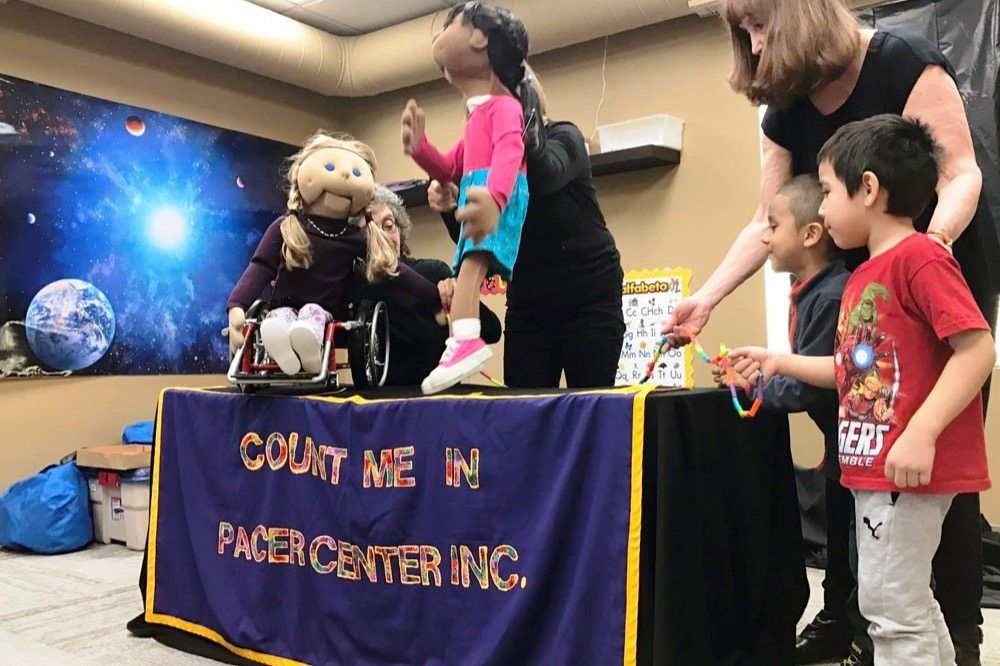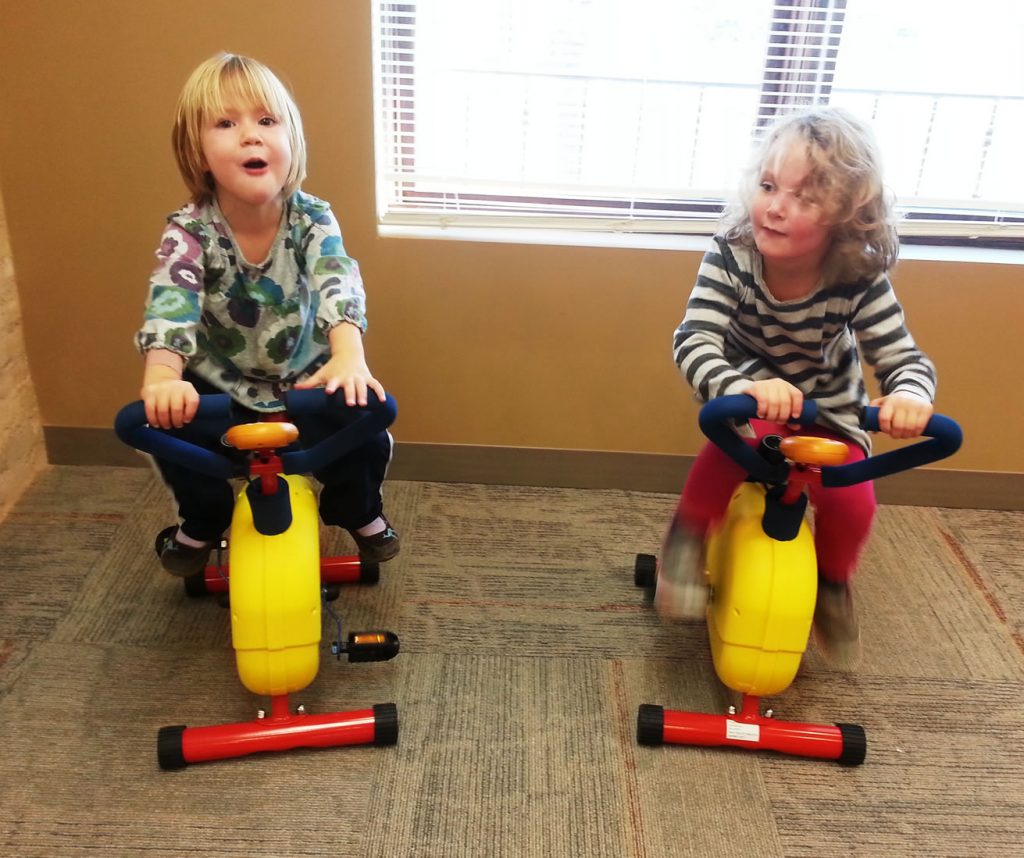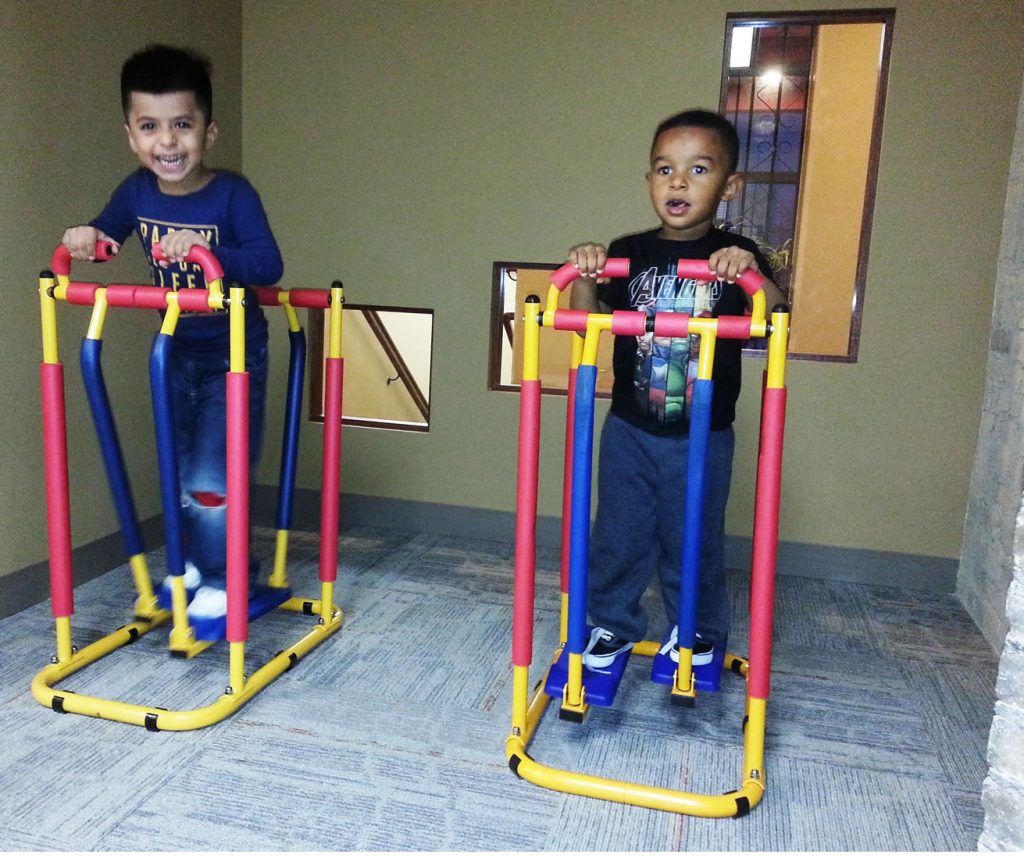
At Circulo de Amigos we are so exited to share with you this video from The Parent Aware Standards and Indicators. This is a project of the Minnesota Department of Human Services in coordination with the Minnesota Departments of Education and Health. We were made a part of this project to help other providers integrate individualized learning as part of their curriculum, while using assessments.
It is an honor to be recognized for the work we do and the best practices we engage in regarding early childhood education.
Parent Aware’s Star Ratings help parents find programs that go above and beyond to prepare children for school and life. Their one- to four-star ratings system – a free service – measures best practices identified by research that help children succeed.
We’re 4-Star Parent Aware Rated!
We are so proud to share the news with you, Circulo de Amigos Child Care Center has earned the 4 Stars parent Aware Rating. This is the highest possible rating tool designed to improve, support and celebrate the strengths of childcare and early learning programs.
This award shows our commitment and hard work over the past year. Gracias…Thank you all the teachers and staff who made this rating possible and to the families who support our Centro and allow us the opportunity to provide a high quality experience to children!
The Minnesota Department of Human Services leads Parent Aware in coordination with the Minnesota Office of Early Learning. Child Care Aware of Minnesota is working in local communities to share the Ratings with parents and prepare childcare and early education programs.
Participating programs earn from one star to four stars by demonstrating competencies in the areas of health and well-being, child assessment and family relationships. All Star-rated programs go above and beyond licensing requirements to support school readiness. By voluntarily becoming rated, a program shows it cares enough about early learning to use best practices and proven approaches.
Thanks again…Gracias!!!


Try to use clear, respectful language when talking about someone with disabilities. For a younger child, keep explanations simple, such as, "She uses a wheelchair because a part of her body does not work as well as it could". Just as you guided your very young child when he or she began to befriend others, you can encourage your child to learn about and be a friend to children who have disabilities.
Builds Up their Immune System:
It’s no surprise that many children that are raised on, or around, a farm are generally healthier than those that aren’t. This is because on a regular basis these children are exposed to dirt, animals, pests, bacteria and everything else that send modern-day parents running. While we like to think that dirt, animals, pests and bacteria do more harm than good it’s actually the opposite. When your children come into contact with these things in a natural way (outside) and on a regular basis, they are less likely to develop autoimmune disorders and allergies.
Provides Exercise:
Playing outside provides children with something many children don’t get enough of anymore – exercise. Exercising while having fun is the best kind of exercise, and that’s exactly what playing outside does. Riding bikes, playing tag with friends, building a snowman, sledding, having snowball fights and other outside activities get our children’s bodies moving…something most video games can’t do.
Stimulates the Imagination:
Sadly, one of the things that today’s children are lacking is an imagination. This is because we’re in the technological age – today children are literally shown everything. Why go outside and play cops and robbers when we can watch a movie about it or play a video game? Playing outside helps children develop their imagination, which is something that television, video games, computers, iPods, etc. don’t do.
It Promotes Problem Solving Skills:
Children who play outside learn how to solve real life problems better than children who are always in their rooms playing video games or secluding themselves. Regardless of if they’re learning how to get along with friends or trying to figure out the best way to build a fort – they’re problem solving.
It Provides Vitamin D:
It’s important that your children get Vitamin D, which is provided by the sun. Vitamin D helps promote better moods, energy levels, memory, overall health and more. Just 10-15 minutes out in the sun will give your children their daily dose of Vitamin D.
It doesn’t matter if it is summer or winter outside, your children need everything listed above and playing outside is a great way to get them all at once! Obviously, if it’s blizzard-like conditions outside, your children should stay inside, but if it’s nice outside then bundle the kids up and let them play for half an hour or so.
Nebraska City, Neb. (January 1 1, 2016), Circulo de Amigos Child Care Center located at 2830 Cedar Ave. South in Minneapolis, Minnesota has earned national certification as a Nature Explore Classroom from Dimensions Educational Research Foundation and the Arbor Day Foundation.
Circulo de Amigos Child Care Center now joins a growing network of organizations and institutions that have created effective nature-based outdoor learning environments for children. This network allows for idea-sharing, peer support and continuous development.
Winter is a time for Yin activities. It is healthy to be introspective and quiet. However, children need physical activity even during winter. At Círculo De Amigos we believe that exercise is crucial to being physically, mentally, emotionally and spiritually healthy so we have designated a space for active play, extracurricular activities and exercise in the winter.
Exercising, Playing and Staying Active!
Exercise for babies and children may do far more than improve physical fitness. It may also stimulate brain growth and boost cognitive performance. Physical activity and sports are generally promoted for their positive effect on children’s physical health: regular participation in physical activity in childhood is associated with a decreased cardiovascular risk in youth and adulthood.
Physical activity has beneficial effects on several mental health outcomes, including health-related quality of life and better mood states. In addition, there is a strong belief that regular participation in physical activity is linked to enhancement of brain function and cognition, thereby positively influencing academic performance.
Exercise helps improve kid’s self-esteem and self-confidence. Kids who participate in regular physical activity feel better about themselves.
Exercise stimulates neurogenesis—the birth of new neurons.
Exercise mobilizes the expression of genes that are believed to enhance brain plasticity—i.e., the ability of the brain to change its neural pathways.

Circulo De Amigos Gym for the Little Ones
Exercise prevents brain tissue loss in older adults.
Exercise reduces stress. Children who exercise on a regular basis report fewer feelings of anxiety.
Exercise helps kids build strong bones, muscles and joints.
Exercise helps kids maintain a healthy weight.
Exercise fosters good sleep habits. Children who exercise regularly sleep better at night.
Exercise helps the learning process. Kids who exercise on a regular basis feel more ready and able to learn at school.
Exercise is good for your heart. Aerobic exercise helps the heart to work more efficiently.
Exercise increase flexibility. It improves kid’s range of motion and enables them to perform better in sports, martial arts and dance.
Exercise helps to balance your moods. Kids who exercise report being better at keeping feelings of anger under control.
Exercise is fun!!! Endorphins are released when you exercise, making you feel good.

Circulo De Amigos Gym for the Little Ones
Active children enjoy additional health benefits, because:
We are moving right along at the New Círculo De Amigos Spanish Immersion Child Care Center. We had our open house on June 26th and were doing tours all day long to many families. We are very happy on how the children are enjoying the new center and how they have shared what they are learning with their parents. We would like to share on this post some of the experiences a family that have enrolled their daughter is having with us. This comes from Jenny Anderson, David Kaplan, and daughter Celia.
Here are the questions we asked them.
1) What prompted you to seek a Spanish Immersion Child Care Center?
We felt that knowing a second language is a huge benefit, both in learning and in life, especially at an early age. As children, we did not have the opportunity to start learning another language until junior high. Getting an early start makes it SO much easier for her to learn, and makes it much more likely that it will "stick" - we have already seen her remembering and responding to Spanish words less than two weeks into her time at Círculo despite having no previous exposure.
As for why Spanish - it is (I believe) the second most-spoken language in the US, and also the second most-spoken language worldwide (right behind Mandarin and before English). Spanish immersion provides her an incredible foundation in a Romance language that is transferable to learning other languages later, should she choose to.
2) Why did you specifically select Círculo De Amigos for your child?
A personal recommendation from a friend prompted us to check it out initially, but we were sold by the staff. It is evident in everything they do how much they love and care about the kids, and how deep their commitment runs to building a safe, healthy, and happy environment where nature, imagination, and creativity are the center of everything they do. We felt that they would take care of our daughter as if she were their own.
3) Based on the last couple weeks your child has been with us, what have you seen in your child that makes you happy to have selected Círculo De Amigos?
She comes home happy and exhausted! She greets her teachers every morning with hugs and smiles, and often doesn't want to leave when we pick her up in the evenings (especially if it means leaving the outdoor play space!). She is already speaking a little Spanish to us and clearly understands even more than she can communicate verbally right now.
4) And finally, what would you say to other parents that are considering or looking for a Spanish Immersion Center for their children?
Celia has attended a few other daycares prior to coming to Círculo and this is by far and away the happiest we've seen her and has been the easiest transition. It is clear how much the staff care for her, and have been incredibly responsive and easy to work with.
